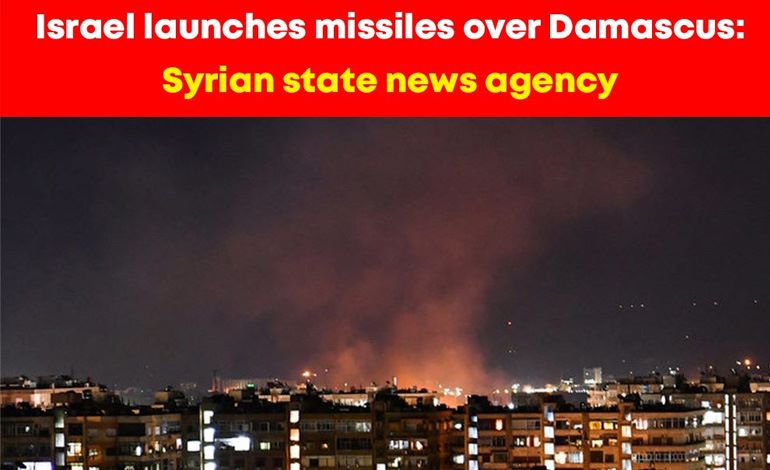Escalation in Middle East as Israeli military targets Syrian capital in airstrikes

In a dramatic escalation of tensions in the Middle East, the Israeli military launched a series of missile strikes over Damascus, according to reports from the Syrian state news agency. The targeted attacks occurred late last night, causing widespread panic and fear among the residents of the Syrian capital.
Details regarding the exact number of missiles launched and the extent of the damage caused are still emerging, as the situation remains fluid and access to reliable information is limited. However, eyewitnesses reported hearing multiple explosions and witnessing plumes of smoke rising from various locations across the city.
The Syrian state news agency, SANA, confirmed the Israeli airstrikes, labeling them as a blatant act of aggression against Syrian sovereignty. The agency further reported that the country's air defense systems were activated in response, engaging and intercepting several of the incoming missiles. It is unclear at this time if any casualties or significant destruction have resulted from the strikes.
Israeli military officials have not yet issued an official statement regarding the airstrikes, and it remains uncertain what specific targets were being aimed at. However, it is well known that Israel has frequently carried out airstrikes in Syria in the past, targeting Iranian military assets and positions allegedly used by Iran-backed militias.
The recent escalation comes amid heightened tensions between Israel and Iran, with the latter being a key ally of the Syrian government. Israel has repeatedly voiced concerns over Iran's increasing influence in the region and its alleged attempts to transfer advanced weaponry to its proxies in Syria, such as Hezbollah.
The Israeli government has justified its previous military actions in Syria as necessary for national security, aiming to prevent the entrenchment of Iranian forces near its borders. However, these actions have often drawn criticism from the international community, which expresses concerns about potential further destabilization in the already war-torn country.
The missile strikes over Damascus mark a dangerous escalation in an already volatile region, raising fears of a wider conflict between Israel and its adversaries. The United Nations and several countries have called for restraint and an immediate de-escalation of tensions to prevent further violence and loss of civilian lives.
The situation in Syria continues to evolve rapidly, and the international community is closely monitoring the developments on the ground. Efforts to restore peace and stability in the region remain a priority, as the consequences of a full-scale confrontation could have severe repercussions throughout the Middle East.
As the situation unfolds, the world waits anxiously to see if diplomatic efforts can defuse the tensions and prevent the situation from spiraling into a broader conflict. The coming days will undoubtedly be crucial in determining the path forward for Israel, Syria, and the entire Middle East.